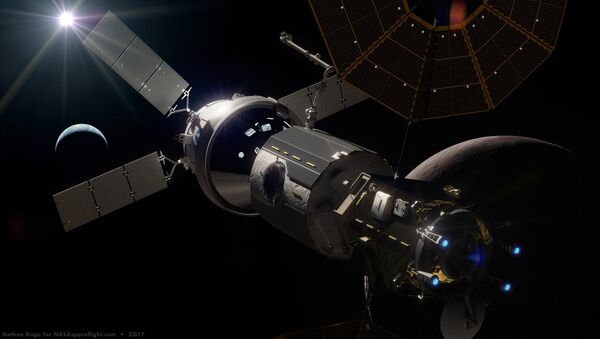Apart from boosting the number of personnel involved in the defense space sector to more than 600, the new strategy will reportedly include plans for the "jamming of civilian satellites used for broadcasters and satellite navigation to support military capabilities." Moreover, UK plans envisage the review of the EU Galileo programme. Sputnik spoke to Alexandra Stickings, research analyst at the Royal United Services Institute, on the issue.
Sputnik: In your view, how essential is it for Britain to invest in a space defence program?
Alexandra Stickings: The UK should invest in a space defence programme. As well as the benefits it provides to the military, in the UK Space is considered to be Critical National Infrastructure (CNI), and in turn it is essential for other CNI, such as transport, communications and the emergency services. It is essential that these benefits are not lost.
The announcement of the Defence Space Strategy shows that the UK recognises the threats to it's space infrastructure — everything from space weather and debris to actions by adversaries. Investing in a space defence programme will ensure that the UK is well placed to protect its space assets.
Sputnik: How justified are the claims of intensifying space threats?
Alexandra Stickings: It is clear that space threats are increasing. Technology is moving forward quickly, and has led to new counterspace capabilities.
Similarly, the proliferation of new actors in space, along with the many planned mega-constellations, means that the space environment is evolving and becoming more congested and contested.
Sputnik: If the UK pulls out of the Galileo satellite program what consequences can it have of Britain's relations with the EU?
Alexandra Stickings: If the UK has no future involvement in Galileo, it could have negative implications for the UK's involvement in other current and future EU space programmes.
Sputnik: Britain has previously pointed out the importance of sharing intelligence with the EU post Brexit, can this move have any impact on that?
Alexandra Stickings: If the UK does not have access to the Public Regulated Service aspect of Galileo, the EU may not be able to share sensitive information gathered from the PRS without an information sharing agreement in place.
The views and opinions expressed by Alexandra Stickings are those of the analyst and do not necessarily reflect those of Sputnik.

